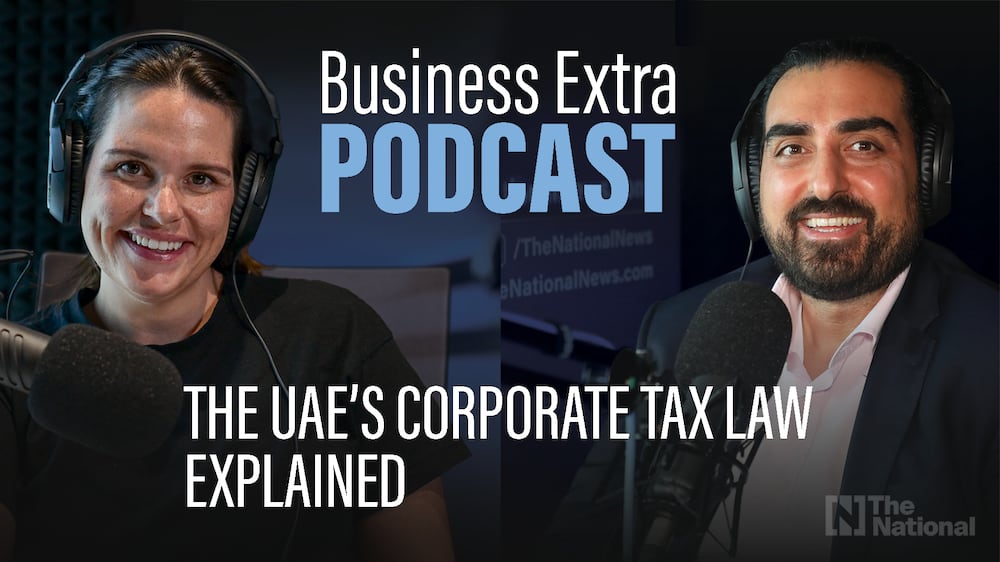As corporate tax was launched in the UAE on June 1, a couple of long-awaited decisions on free zones were released.
One was a Cabinet decision while the other was a ministerial one.
It is important to understand that these decisions are pieces of a larger whole. They must be read in the context of other pieces of information already released. Any elements not specifically documented may be detailed in a future release, with many more expected.
UAE corporate tax: What you need to know

Finally, these decisions were issued by different government bodies: The Cabinet, the Finance Ministry and the Federal Tax Authority.
Do we now have a definitive position on free zones and corporate tax? No.
Here is what we have learnt, alongside some implications and questions you should be considering.
The original guidance from 2022 – that said zero per cent corporate tax would apply to free zone entities if no onshore trading was conducted – has been qualified quite extensively.
These qualifications are in the form of activities. Those on the list that are not excluded are considered qualifying income. This means that no corporate tax is payable on them.
Conversely, those activities that are excluded will attract corporate tax. The list is not exhaustive, which brings us to this working example from VAT.
Established frameworks can be useful in shaping our thinking.
In the aviation sector, direct costs (fuel) and secondary supporting costs (parts for repairs) that ensure an aircraft can operate are zero per cent for VAT purposes. Tertiary costs are standard-rated.
The line between secondary and tertiary costs can sometimes be grey and open to debate.
The implication is that making a treatment decision one way or the other can affect formal reported numbers for money that is due.
While further official releases will provide clarification, keep the following factors in mind.
The UK introduced its first nationwide tax in 1798 and to this day, there continues to be a series of cases seeking to clearly define the treatment of a particular aspect of an ever-evolving tax law regime.
Are you as an organisation planning on being conservative? Where some doubt may exist in interpreting on what side of the fence a particular stream of revenue is, which column will you count it in?
To be clear, as a qualifying free zone person, the decision I lay out above is whether to opt in for corporate tax or not.
If you decide to pay 9 per cent corporate tax on your taxable profits, the warren of possibilities instantly disappear.
If you are a qualifying free zone person trading with another qualifying free zone person in a clearly defined non-excluded activity, then you can elect to opt out of corporate tax.
What happens if your customer is a non-free zone person but the activity is a qualifying activity? Then the revenue is also qualifying revenue and corporate tax is zero per cent.
Staying with a customer who is a non-free zone person, this is where it gets interesting.
The UAE's corporate tax law explained: Business Extra

Should the activity be non-qualifying, but below a “de minimis” level, that revenue can still be qualifying income and corporate tax remains at zero per cent.
Does this mean I can do some trade onshore? It would appear so, but there are limits.
The revenue must be no more than 5 per cent of total revenue or the value of this number cannot exceed Dh5 million. The lower of the two is the tested number. This relates to a single reporting period.
There are two additional elements that are critical here.
If the “de minimis” level is breached, then an entity loses its qualifying free zone person status for the tax year in question. Additionally, it loses it for the next four tax years.
The greater issue to consider is a post-reporting change of treatment of revenue or a clarification that changes the nature of your revenue, which results in a failed “de minimis” test after the fact.
There will almost certainly be procedures for those that need to restate their reported tax computation.
It occurs in statutory financial reporting all the time. As of now, we do not know what this will involve and what penalties may be imposed.
Unlike VAT, no guidance has been issued relating to penalties.
UAE introduces corporate tax from June 2023 – in pictures
One final thought. An entity that freely chooses to opt out of the free zone exemption for corporate tax cannot opt back in at a future time. It is a one-way journey.
Should an entity lose its qualifying free zone person status, does this mean that they are not considered to have opted out and may, after the period of suspension served, continue to choose whether or not to opt out?
Staying alert and studying the official decisions of authorities has never been more important for your organisation.
David Daly is a partner at the Gulf Tax Accounting Group in the UAE











